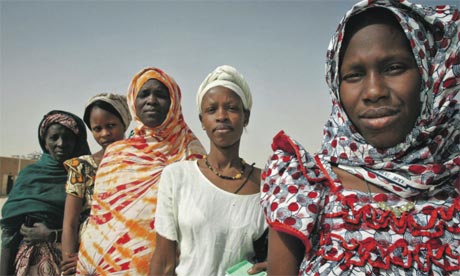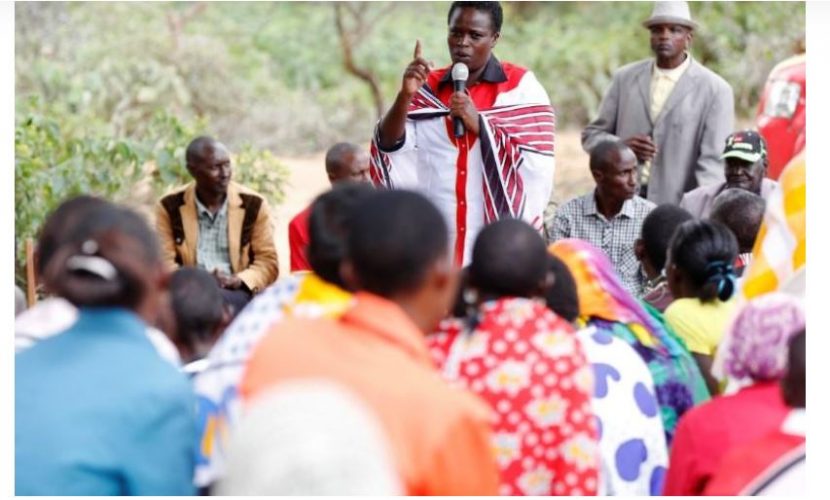Today Zimbabwe joins the rest of the world in commemorating the International Day of Rural Women.
The day recognises the critical role and contribution of rural women, including indigenous women, in enhancing agricultural and rural development, improving food security and eradicating rural poverty.
The world over, the vital role that women and girls play in guaranteeing the sustainability of rural households and communities has been gaining increasing attention.
With Zimbabwe also facing an increasingly critical need to act against climate change, the important role that rural women and girls play in building resilience is unquestionable.
This will not require only leaders to act, but whole populations to make necessary changes for a carbon-neutral world.
The day, which is celebrated every October 15, is running under the theme, “Rural women and girls building climate resilience”. It leverages the momentum garnered by the UN Climate Action Summit, which kicked off the 74th session of the UN General Assembly.
Again the day is a reminder that the world’s sustainable future is not possible without rural women and girls.
In a statement to mark the day, UN Secretary-General Antonio Guterres says: “As early adopters of new agricultural techniques, first responders in crises and entrepreneurs of green energy, rural women are a powerful force that can drive global progress.”
In rural Zimbabwe, women and girls account for a substantial proportion of agricultural labour force, including informal work, and perform the bulk of unpaid care and domestic work within families and households.

They make significant contributions to agricultural production, food security and nutrition, land and natural resource management, and building climate resilience.
According to the National Gender Profile of Agriculture in Zimbabwe, rural women constitute 70 percent of household and family labour in rural communities.
In most rural communities across the country, women and girls continue to suffer disproportionately from multi-dimensional poverty.
Many women within this demographic are unpaid family workers and are often limited to subsistence farming and whenever there is a surplus to sell rural women seek to make profit for the sustenance of the family as opposed to personal gain.
While extreme poverty has declined globally, the world’s 1 billion people who continue to live in unacceptable conditions of poverty are heavily concentrated in rural areas.
Poverty rates in Zimbabwe’s rural communities are higher than those in urban areas, yet smallholder agriculture produces most of the food and supports the livelihoods of rural communities.
Women farmers in the country may be as productive and enterprising as their male counterparts, but many have little or no access to land, credit, agricultural inputs and markets.
In most rural communities and households, which are still patriarchal, discriminatory social norms continue to limit women’s decision-making power and political participation.
Women and girls in those rural communities still struggle to access productive resources, assets, public services such as education, healthcare and infrastructure, including water and sanitation, while their labour remains unpaid.
In Zimbabwe, the impacts of climate change are becoming more visible, including access to productive and natural resources, amplifying existing gender inequalities in rural areas.
Climate change affects women’s and men’s assets and well-being differently in terms of agricultural production, food security, health, water and energy resources, climate-induced migration and conflict, and climate-related natural disasters.
According to the UN, one in three employed women works in agriculture.
“Women collect biomass fuels, manually process foodstuffs, and pump water — 80 per cent of households without piped water rely on women and girls for water collection. Rural women are at the forefront of the battle lines when natural resources and agriculture are threatened. For example, a quarter of the total damage and loss resulting from climate-related disasters from 2006 to 2016 was suffered by the agricultural sector in developing countries, significantly impacting rural women and girls’ food security and productive potential.”
Government with other development partners should cooperate in empowering rural women and girls as it is essential to building a prosperous, equitable future for all on a healthy planet.
This is also needed for the country to achieve gender equality, ensuring decent work for all, eradicating poverty and hunger and taking climate action.
Improving the lives of women and girls in rural areas requires robust legal and policy reforms that will see their inclusion in decisions that affect their lives.
One of the most effective ways to achieve progress on the threats posed by climate change is addressing gender inequality.
Empowered women have greater capacity to respond to climate change and they play important roles in adopting low-carbon technologies, spreading knowledge about climate change, and urging action.

